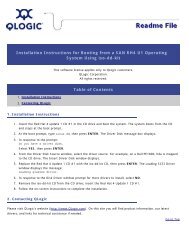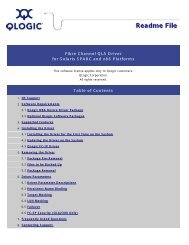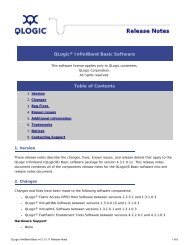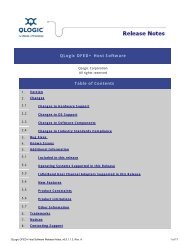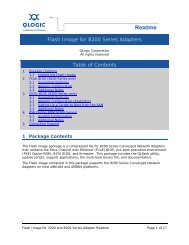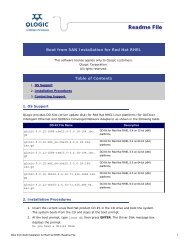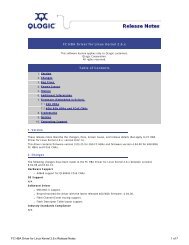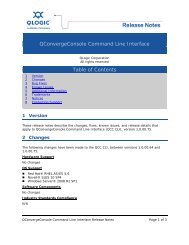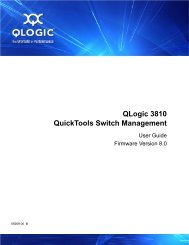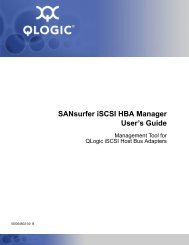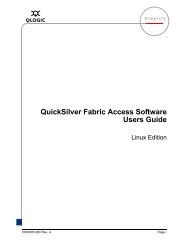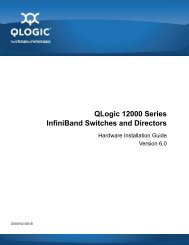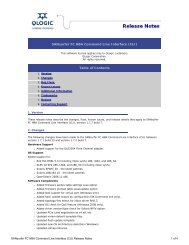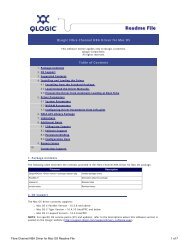QLogic OFED+ Host Software User Guide, Rev. B
QLogic OFED+ Host Software User Guide, Rev. B
QLogic OFED+ Host Software User Guide, Rev. B
You also want an ePaper? Increase the reach of your titles
YUMPU automatically turns print PDFs into web optimized ePapers that Google loves.
4–Running <strong>QLogic</strong> MPI on <strong>QLogic</strong> Adapters<br />
Getting Started with MPI<br />
MPI-IO with ROMIO<br />
MPI-IO is the part of the MPI-2 standard, supporting collective and parallel file I/O<br />
operations. One advantage of using MPI-IO is that it can take care of managing<br />
file locks when file data is shared among nodes.<br />
<strong>QLogic</strong> MPI includes ROMIO version 1.2.6. ROMIO is a high-performance,<br />
portable implementation of MPI-IO from Argonne National Laboratory. ROMIO<br />
includes everything defined in the MPI-2 I/O chapter of the MPI-2 standard except<br />
support for file interoperability and user-defined error handlers for files. Of the<br />
MPI-2 features, <strong>QLogic</strong> MPI includes only the MPI-IO features implemented in<br />
ROMIO version 126 and the generalized MPI_All to allow communication<br />
exchange. See the ROMIO documentation at http://www.mcs.anl.gov/romio for<br />
details.<br />
NFS, PanFS, and local (UFS) support is enabled.<br />
Getting Started with MPI<br />
Copy Examples<br />
This section shows how to compile and run some simple example programs that<br />
are included in the <strong>QLogic</strong> <strong>OFED+</strong> <strong>Host</strong> software product. Compiling and running<br />
these examples enables you to verify that <strong>QLogic</strong> MPI and its components have<br />
been properly installed on the cluster. See “<strong>QLogic</strong> MPI Troubleshooting” on<br />
page F-11 if you have problems compiling or running these examples.<br />
These examples assume that your cluster’s policy allows you to use the mpirun<br />
script directly, without having to submit the job to a batch queuing system.<br />
Start by copying the examples to your working directory:<br />
$ cp /usr/mpi/qlogic/share/mpich/examples/basic/* .<br />
or<br />
$ cp /usr/share/mpich/examples/basic/* .<br />
Create the mpihosts File<br />
Next, create an MPI hosts file in the same working directory. It contains the host<br />
names of the nodes in your cluster that run the examples, with one host name per<br />
line. Name this file mpihosts. The contents can be in the following format:<br />
hostname1<br />
hostname2<br />
...<br />
More details on the mpihosts file can be found in “mpihosts File Details” on<br />
page 4-15.<br />
D000046-005 B 4-3



